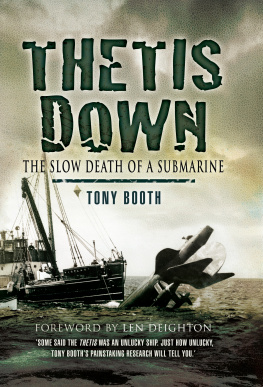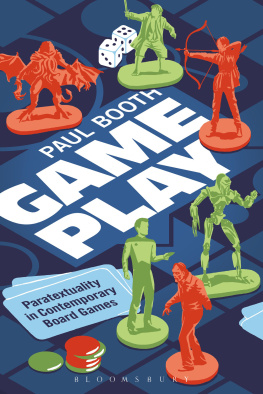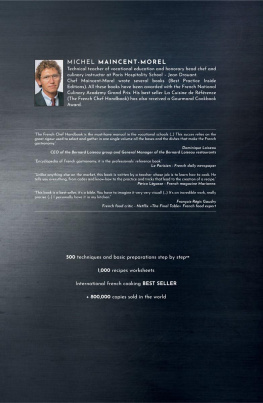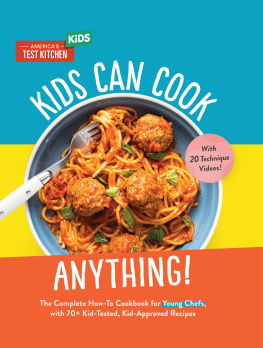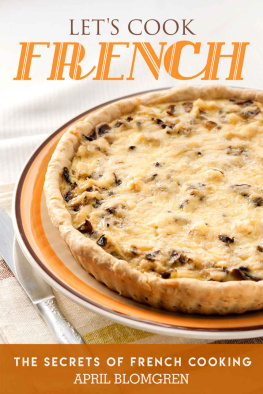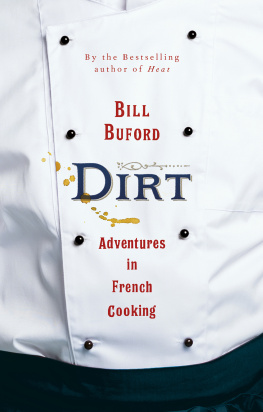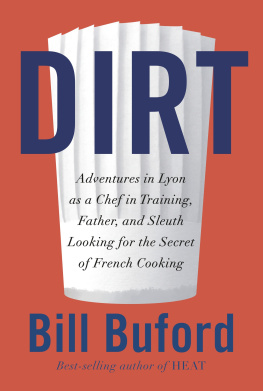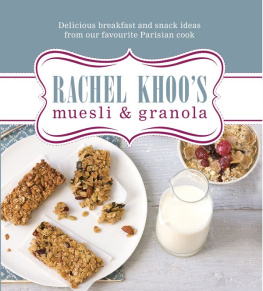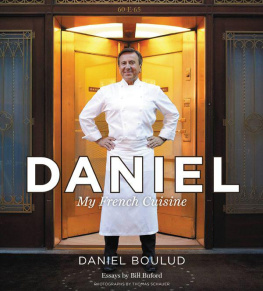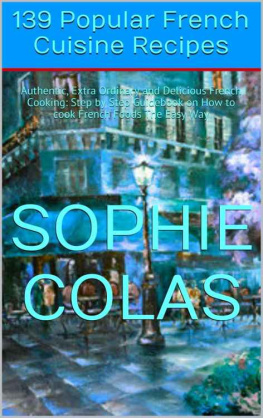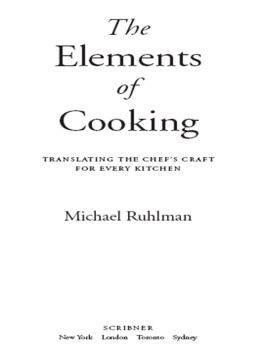Contents
About the Author
Michael Booth is a travel writer and journalist who writes regularly for a variety of newspapers and magazines including the Independent on Sunday, Cond Nast Traveller and Monocle. His latest book, Just As Well Im Leaving: to the Orient with Hans Christian Andersen was published in 2005 and he is currently working on a book about his familys food adventures in Japan. He lives and cooks in Paris with his wife, Lissen, and two children, Asger and Emil.
ALSO BY MICHAEL BOOTH
Just as Well Im Leaving: To the Orient with Hans Christian Andersen
To Lissen
What! perhaps someone will say, another work on cooking? For the past few years the public has been deluged with writings of this sort. I agree. But it is precisely all these works that give birth to this one.
from the preface of Menons
Le Manuel des Officiers de Bouche (1759)
Doing Without Delia
Tales of Triumph and Disaster in a French Kitchen
Michael Booth

Chapter 1
Delia Smith was on fire. The flames licked her face but she remained passive, gazing into the middle distance. Even as she began to boil and blister, the familiar, wan smile remained stoically fixed. But soon she was aflame: St Joan of Norwich, blazing, burning, burnt and then ashes. Nearby, Nigella was roaring too, her saucy wit no defence against the orange tongues that tickled her dcolletage. Within seconds she was charred beyond recognition.
Jamie Oliver had not quite caught fire. I gave him a poke and sprinkled him with lighter fuel. He flambed like a crpe Suzette, and I watched the familiar, fleshy grin curl into a manic leer.
Someone threw Sophie Grigson onto the burning pile and I winced. It was all I could do to stop myself jumping into the flames to save her but my wife, Lissen, sensing my resolve was weakening, put her arm around my shoulders and squeezed tightly. She knew what these people had meant to me; she knew how much pleasure they had given me, how they had enriched my life and kept me occupied. These celebrity chefs had inspired my love of cooking for over a decade, but now they were fuelling the evenings pyrotechnics. Even Sophie must burn.
I lingered for a moment over Rick Stein, recalling some expensive and elaborate seafood experiments as his face bathed in the dancing flames. Michael, what is that? asked my sister, pointing at the book in my hands. Lissen followed her gaze: Come on, this was your idea. If we are going to do this, were going to do it properly. I threw Rick, limply, in the direction of the bonfire: On you go! He only made it to the edge. Lissen picked him up and threw him into the heart of the flames where he ignited briefly, then vanished.
Its true, it had been my idea to end the evening with a cookbook bonfire in the garden. But I had also had two gins and several glasses of wine, so hardly expected anyone to take me seriously. Surely it is at times like this that ones loved ones are supposed to intervene to protect one, not let one set fire to hundreds of pounds worth of cookery books.
It seems some people have an aversion to television chefs. Several of my friends and family assembled for our farewell dinner that night had thrown themselves into the task with a gusto not seen since Goebbelss book bonfires in Berlins Opernplatz. I, on the other hand, do not. In fact, over the last decade I have been in thrall to just about every single one of them, from Ken Hom to Keith Floyd, from Delias One is Fun, to the Two Fat Ladies. I have watched their shows, caught the repeats on cable, bought the books that accompanied the series and, slowly, methodically, slavishly attempted to make just about every recipe. I genuinely believe Jamie Oliver to be some kind of autistic savant genius, for instance, while Delia is single-handedly responsible for weaning the British off soggy greens and Bisto. Rick Stein is the Codfather; and Nigel Slater writes like an angel. I wouldnt be surprised if Nigella really did turn out to be some kind of goddess.
So why the bonfire?
Its a long story. For a full explanation we need to go back to 1981. No, lets do this properly and return to 1972, around about the time I began to eat solids...
To say that I was a fussy eater as a child is misleading only in the sense that I didnt actually eat anything much for the first ten or so years of my life, apart from chips and Tunnocks tea cakes.
Dinnertimes were traumatic, a dark cloud glowering over every day. The meal would usually begin with my mother presenting some beautifully prepared dish, which she had crafted with great love from the best produce she could afford pedantic care having been taken to remove anything green, or that had bones, or a texture that might conceivably provoke histrionic, repulsed gurning. The rest of the family would then take pains to express their delight, downing forkfuls with loud praise while I sat there with a gargoyle grimace, claiming either not to be hungry, to feel unwell or, when faced with a dish containing cooked carrots, threatening to hold my breath until I died.
Usually they would go through the ritual of a few well-intentioned attempts to persuade, cajole or, finally, bribe me into eating before we reached the inevitable climax of a full-blown, hair-tearing conniption fit on the floor, followed by the inevitable plate of tea cakes in front of Dallas, and then bed.
Other than that I survived, like some kind of pre-teen air plant, on bread (white, pre-sliced, un-buttered) and orange squash. But I could not avoid food altogether, particularly away from home. Visits to elderly relatives for Sunday lunch were an especially troubling prospect and invitations to friends houses for meals took on the air of a royal visit to Tonga as my mother had to pre-approve the menu or forward a long list of Michael doesnt likes. I can recall to this day the throat-tightening horror of being presented with a plate of gammon and cabbage at the home of one schoolfriend, and the hot shame of a half-hour spent pushing it around my plate as the rest of the family wolfed theirs down. If only theyd had a dog.
I didnt have any eating disorders; I wasnt anorexic, I wasnt bulimic, I was simply an insufferable fusspot. I am sure many children are like this; I just didnt know any of them. My brother and sister both had healthy, normal appetites and more often than not they would hoover up my leftovers, making me feel even more feeble. I gave up going to birthday parties out of mortal fear of shrivelled sausages on sticks and over-buttered cucumber sandwiches. On more than one occasion my mother received a call to come and retrieve her child who was, at that moment, thrashing around on the floor like a stricken octopus having been offered a well-intentioned plate of baked beans. I rarely made it to Pin the Tail on the Donkey, let alone the party bag.
So how does one go from truculent, pre-teen mealtime refusenik, to a food-obsessed, thirty-something glutton (lets not tiptoe around this with terms like gourmet and gourmand), who will cross a county after a fresh-caught Dover sole tip-off, and re-mortgage his house for a white truffle?
The year, as I said, was 1981. We were motoring through France on a family holiday with two other families, aiming for a camp site in the Jura. We stopped overnight at a small auberge two hours south of Paris and, once precarious roof racks had been secured for the night, headed for the dining room in my case, resigned to another night of famine.



